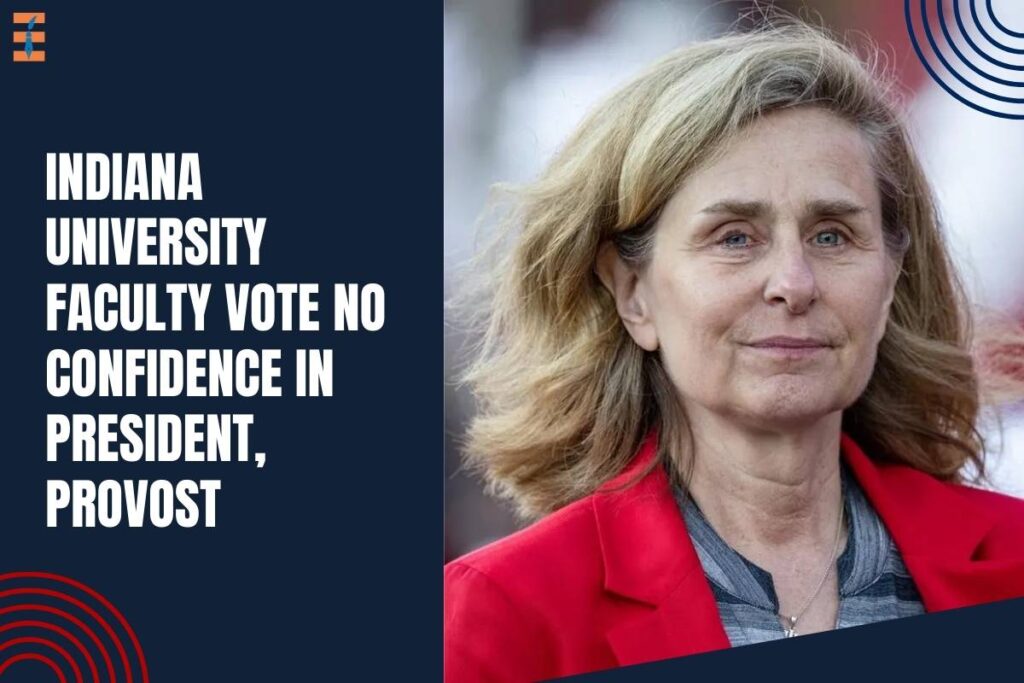Source- Forbes
In a dramatic turn of events, the faculty at Indiana University (Bloomington) has delivered resounding votes of no confidence against IU President Pamela Whitten, Provost Rahul Shrivastav, and Vice Provost for Faculty and Academic Affairs Carrie Docherty. The decisions, reached during a meeting that saw nearly 900 faculty members in attendance, reflect deep-seated concerns over the administration’s actions and leadership.
The no-confidence votes, reported by the Indiana University Daily Student, showcase overwhelming dissatisfaction among faculty members, with staggering percentages voting against the top administrators:
- 93.1% expressed no confidence in President Whitten,
- 91.5% showed no confidence in Provost Shrivastav,
- 75% indicated no confidence in Vice Provost Docherty.
These votes stem from a series of controversies that have embroiled the IU campus over the past year, leading to mounting tensions between faculty and administration. A petition, calling for the meeting and subsequent votes, highlighted grievances ranging from perceived infringements on academic freedom to concerns over shared governance within the university.
Among the cited issues were the cancellation of an art exhibit at IU’s Eskenazi Museum of Art, the suspension of a faculty member, attempts to separate the Kinsey Institute from IU, and perceived failures in supporting faculty members in controversial situations, such as Dr. Caitlin Bernard’s case.
Understanding No-Confidence Votes in University Governance
No-confidence votes are significant markers of faculty discontent, signaling deep-rooted concerns that cannot be easily dismissed. While they lack official authority, such votes often catalyze discussions and actions within university governance structures.
Indiana University has a historical precedent for such votes, with the last no-confidence motion against a university president occurring in 2005. The motivations behind these votes typically revolve around broader issues such as academic restructuring, budgetary concerns, and perceived challenges to institutional autonomy.
President Whitten responded to the vote with a message of unity, acknowledging the diversity of perspectives within the university while emphasizing the need for collaboration in navigating contemporary challenges in higher education. She emphasized the importance of faculty input in shaping the university’s future direction.
Board Backs President Whitten Amid Calls for Collaboration at IU
The Board of Trustees echoed support for President Whitten, emphasizing her leadership during a transformative period in higher education. They highlighted the strategic plan, IU 2030, as a collaborative effort between administration, faculty, and staff aimed at securing the university’s long-term success.
While the no-confidence votes underscore simmering tensions within IU, they also represent a call for renewed dialogue and collaboration between faculty and administration. The coming months are likely to witness intensive discussions aimed at addressing the concerns raised by the faculty and charting a path forward that ensures academic excellence, institutional integrity, and shared governance at Indiana University.
Also Read: Top 25 SaaS EdTech Companies in 2023

